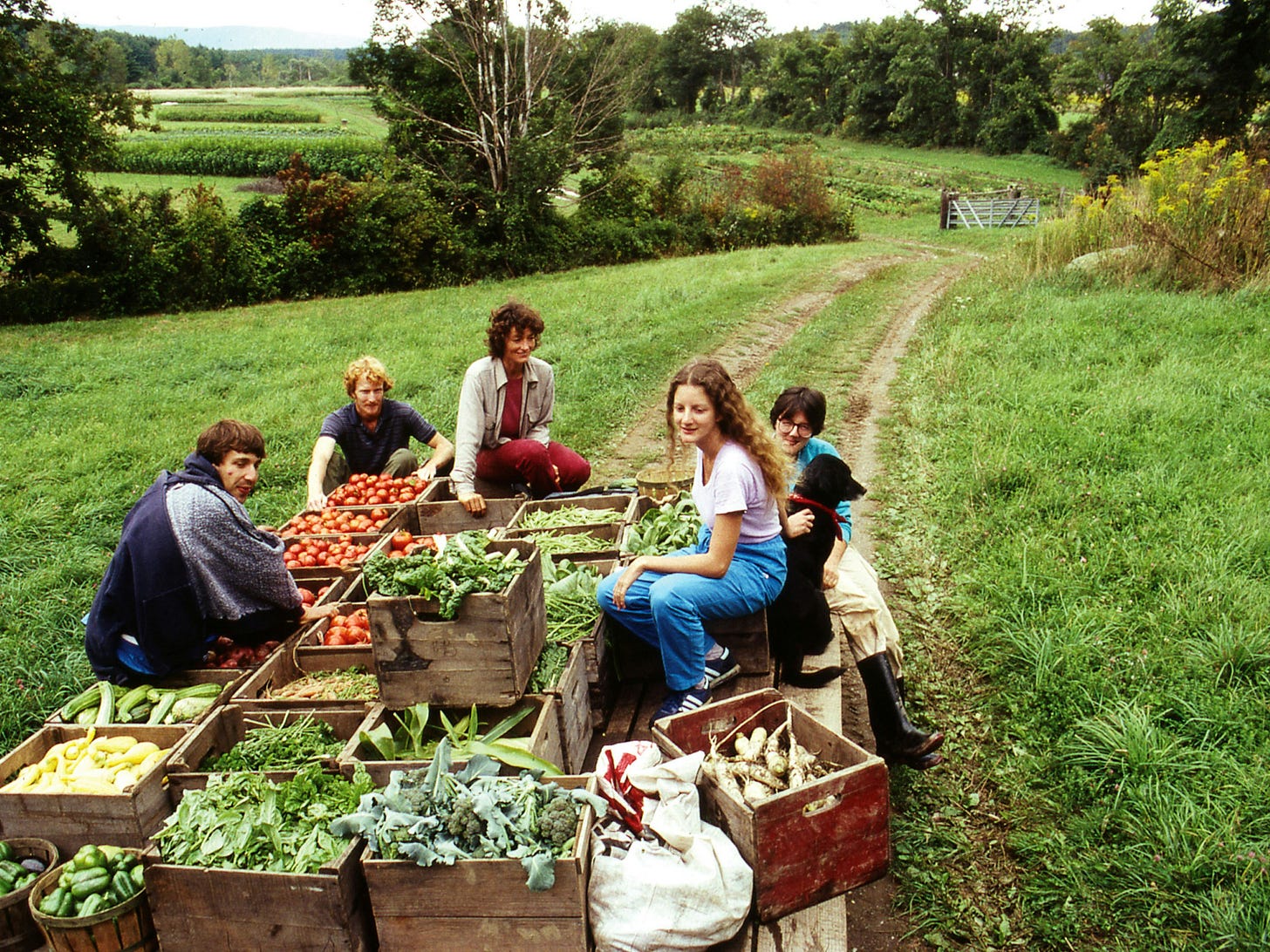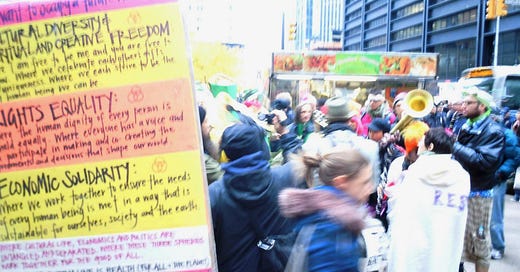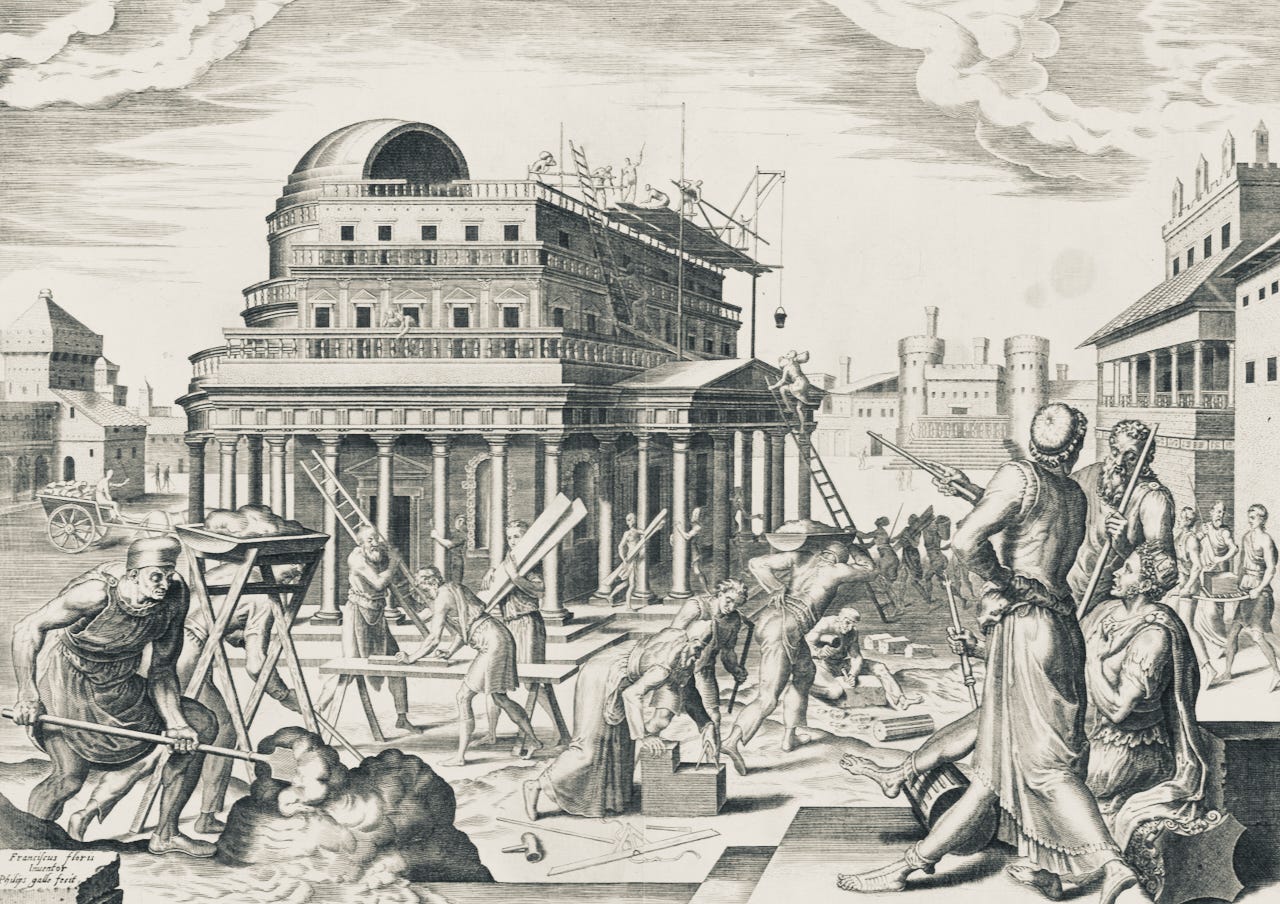How can we work for threefolding?
When it comes to healing society, this is the most urgent question of our time
To heal is to make whole — to renew that which has lost its integrity, to restore balance and harmony. But how do we heal social life? How do we make society-at-large whole?
Unfortunately, we don’t usually ask this question. Instead we put our heads down and simply do our part — do what we can in the place where we find ourselves. We focus on growing healthy food, or teaching the next generation of kids, or fighting for a higher minimum wage. But these things are all part of the whole. They’re all interconnected, all tied together. They all pull at each other.
For example: if we raise the wage for farm workers, then the cost of food goes up, which means teachers will have to pay more to feed their families, which means they’ll have less money to pay rent.
Now I’m definitely not saying we shouldn’t pay farm workers more. Not at all. I’m just saying we need to understand how everything affects everything else. If we want to build a building, we shouldn’t blindly take stones from one wall in order to raise up another. Here’s how the social scientist Rudolf Steiner describes it:
The individual stone is useless if it does not fit into the overall (building) plan. Reform the law, religion, or anything else — as long as you only take account of the particular item, without having an understanding of the whole, it only results in demolition… All separate reform movements… are only useful if they all work together.1
Of course it’s not easy to develop an “understanding of the whole,” but Steiner’s extensive research at least makes this possible. He shows how all social life is threefold in nature — it has a cultural aspect, an economic aspect, and a governance aspect — and he shows, in detail, how these three functions need to come into right relationship in order to heal society. It’s this harmonizing activity that people refer to as “social threefolding.”
But really, you might ask, how can we expect farmers and teachers — as well as cooks, cashiers, and everyone else — to understand society-at-large when we’re all so busy just trying to survive? And even if we did develop a deeper understanding of these things, what can we do with it? Well, let’s start by looking at what threefolders have already done.
In the past, threefolders have worked in two main directions. The first is into areas already fructified by “anthroposophy” (Steiner’s larger spiritual worldview). Threefolders have taken their social ideals and worked them into the fields of education (Waldorf schools), agriculture (biodynamic farms), and disability (Camphill communities), to name just a few.
In those places they’ve focused largely on the question of accessibility. Why shouldn’t everyone — regardless of their wealth and class — be able to eat healthy food and send their children to the school of their choice? Out of such questions arose the CSA (Community Supported Agriculture) movement in the United States, as well as the ATA (Accessible to All) funding model for schools. The basic idea behind these initiatives was: “We all want this farm (or school) to produce food for us (or teach our kids), so how much money do they need, and can we all pitch in to make it happen?”

If you bring the community together around this question, and everyone writes down what they can give, and then you tally up all the pledges… well, you usually don’t have enough. There’s a shortfall. But then, if you ask everyone to dig just a littttle bit deeper into their pockets for a second (or third, or fourth) time, then the group usually comes up with the money. And the beautiful thing is: Everyone gave freely what they felt they could give. Some gave a lot, and some gave a little.
At least, that’s how it used to work. Though some farms and schools still use this model, for the most part it’s become harder and harder to build up the sense of community (and excitement) that such an initiative requires. Really, it’s hard just to get people in the same room these days.
The other ideal that’s connected to these initiatives is decommodifying labor, which means not working for a wage — not selling oneself, one’s labor-power, as if it were a commodity. This buying and selling of labor degrades the human being and gives us the mistaken impression that we’re working for ourselves (for a wage). Instead, we should be clear that our work is selfless, it’s for others: We work to meet their needs, they work to meet ours. So, in a CSA, the farmer doesn’t get paid an hourly wage; she produces goods for the community and the community meets her needs in turn.
Besides working into existing fields, threefolders have also created new fields of anthroposophical work, specifically in organizational development and finance.
The work with organizations started in Holland back in the 1950’s, when Bernard Lievegoed founded NPI (the Netherlands Pedagogical Institute), and continues into the present day through initiatives like the Association for Social Development as well as the work of Otto Scharmer and the Presencing Institute.
The work in anthroposophical finance started in the 1970’s and played a key role in jump-starting the field of sustainable banking. The GLS bank, founded in 1974, was the first “ethical bank” in Germany, and was followed in 1980 by the Triodos bank in Holland and, in 1984, by the Rudolf Steiner Foundation in the US (now RSF Social Finance). Such institutions have focused on lending to sustainable and ethical businesses as well as supporting schools and other cultural initiatives.
This gives us a very, very basic idea of what threefolders have been working on for the past century. It should be noted that it’s from an American-centric perspective and glosses over a huge amount of significant work done all over the world.2 But still, it’s important to see that the focus of most of this work has been on applying healthy social principles to individual undertakings. As impressive (and even revolutionary) as this work has been, it’s not the work of transforming society-at-large.
So we’ve done great work on our own piece of the puzzle, but we’ve lost sight of the whole.
But why? It would seem it’s because it’s incredibly challenging to figure out how to work on this larger scale. There are no job openings for people passionate about understanding and healing the whole of society. There’s no vocational path to follow and very few people to support you.
As you can probably guess, this has been a personal question for me. I became passionate about threefolding in 2007, and I’ve found plenty of ways to deepen my understanding of the whole of society, but very few ways to work directly upon it. So I’ve given this question some thought over the years, and here are some ways I think we can begin to work for social threefolding in a more direct way:
We need to get the word out. This is one of the things Steiner spoke about again and again and again — we have to speak, write, and teach about threefolding as much as possible so people understand it. There should be videos on YouTube. There should be regular workshops and ongoing trainings. And there should be diverse publications where people can write about different aspects of social life from a threefold perspective (you’re reading one right now… do you want to try your hand at writing an article?)
Besides this, we need something like a profession in threefold consulting. The organizational development work has been fruitful, but incomplete. Now we need to ask not just how organizations can be healthy, but how they can contribute to a healthy threefold society.
As an example, if you’re a teacher: How can your school connect with other schools and work towards the ideal of educational freedom? In exploring such a question, maybe you create a coalition of schools. And now the question becomes, How can that coalition work with other coalitions of artists, doctors, journalists — really, all cultural workers — to work towards the larger ideal of cultural freedom? And once that’s in place, once a cultural council has been formed out of all these different coalitions, how can that cultural council connect to economic associations and the government to build a healthy relationship between all three spheres?
This is a task for each one of us — in whatever field we’re working. For too long we’ve focused on how our individual organizations can survive in a broken system, but we’ve failed to ask, How can our organizations help fix that broken system? As Krishnamurti said, “It’s no measure of health to be well adjusted to a profoundly sick society.”3
Such processes will need facilitators and consultants, but this certainly isn’t the only form of threefold consulting that’s needed. Steiner himself spoke about the need to create bank-like institutions that would lend money to healthy cultural and business initiatives. He wasn’t imagining such initiatives being judged by a set of “green” criteria, but instead by people capable of understanding how they could contribute to the healthy growth and harmonization of society.
Once this work starts really building, there will be no end to the ways we can work for threefolding. We’ll need passionate and insightful people to help create and work within economic associations to meet everyone’s needs (not as part of a top-down “command” economy, but organically, out of the work and initiative being done on the ground). And we’ll need passionate and insightful people to help build the connective tissue between the three realms of society.
The time has come to start growing society much more consciously, much more intentionally, and we need threefolders to help guide that process. And these are just some ideas. If you have others, please share them in the comments below.
Yes, writers have to eat, but paywalls just punish low-income people, and why shouldn’t they have access to the writing and ideas they want?
From The Temple Legend, pp. 145-146
The bulk of this work has happened in Europe, but there are also a number of amazing initiatives worldwide including the Community Association Monte Azul in Brazil and the Sekem community in Egypt. A list of some existing projects can be found on the Social Science Section website.
This quote is attributed to Krishnamurti, and he did say things similar to it, but the Krishnamurti Foundation Trust hasn’t actually been able to find these exact words in any of his works.






Just this past week I was listening to Marketplace and pondering how we have such expertise in various fields, and the commensurate positions of power, such as the Fed chair and other regulators, leading academic, voices of authority in the cultural realm, CEOs - all these experts and decision makers, and yet none of them are truly specialists in the whole, even if they are extremely outsized in their influence or depth of knowledge over a large part of the whole, such as the economy.
It left me wondering, who looks at not just the whole of economics, or epidemiology, or the justice system, etc., but the <i>whole</i> whole? The only people I could come up with who might do this are historians attempting a history of the world or a century or something, but they aren't normally involved in significant decision making.
We need an entire group (sector? class?) of people who are experts on the whole who can help reflect that wholeness to the aforementioned experts/leaders while also helping them work together in their decision making. Imagine if Powell, Sanders, Warren, Khan, or Harris had an understanding of threefolding?
And as you say, "Once this work starts really building, there will be no end to the ways we can work for threefolding." - Yes, we need to catch a fire here - and I like your hopefulness that once it does there could be no end in sight as to the positive changes that could occur. Hopefully a positive tipping point is approaching to counter-balance the not-so-positive tipping points we see occurring and predicted all around us. It would be like collectively waking up from a fractured dream into something of a shared social consciousness.
Anyway, kinda wild to run across your substack this morning and see you flesh out an otherwise fleeting inkling that had bubble up in the back of my mind while listening to the radio :)
Hi Seth! This is a really inspiring article. Thank you for writing it and sharing it.
I think about this a lot from the perspective of being part of a cultural institution, The Christian Community, but also this idea of coalitions— working together across initiatives to help each other become stronger and healthier. And Yes, to educational videos on YouTube! And I have always thought of YOU as a threefold consultant— but of course how to make a living? And to train more threefold consultants who work together across the globe.
The thing I actually really want to share is the idea that it would be wonderful to have at least one (maybe many!) educational center: a place where children, high school students, college students, and the public in general could go and have the chance to have an interactive learning experience, like a science museum that lets visitors put their hands in the water and touch marine wildlife, or what have you. What would that look like to explain and demonstrate why the threefold social organism is so important, how it is different from what we are doing today, etc.? Greetings to you and thanks again for this thought provoking essay.